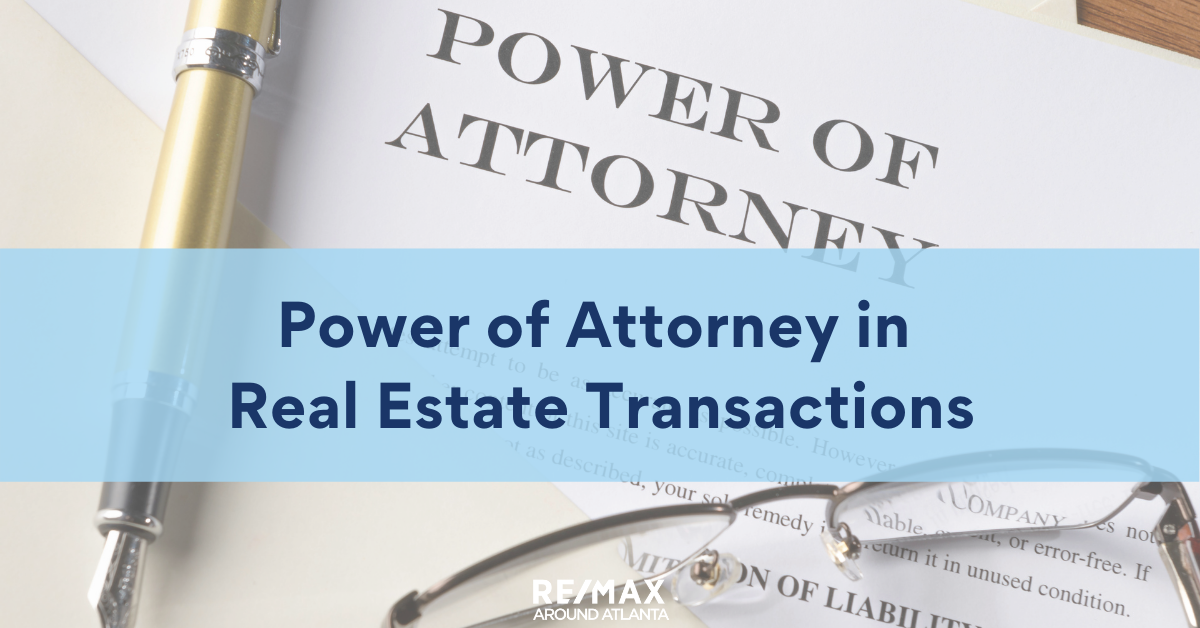|
A person who has been given a Power of Attorney (“POA”) may execute a Purchase Agreement for the sale or purchase of real estate, so long as very specific required conditions are met. Requirements:
The grantor of the POA is referred to as the Principal. The grantee of the POA is referred to as a Representative or agent. The POA may be recorded, but it is not required. Unauthorized Signatures
Generally, a POA is signed before a property is listed or a contract is executed on behalf of the Principal, but sometimes, a person who is not yet authorized will sign without a POA. If that happens, the contract is void and unenforceable. However, a party with the proper authority may ratify the contract after it has been signed by creating a POA with retroactive effect. To be effective in ratifying the contract, the POA must include an express intention to make the POA retroactive. Using a POA with retroactive effect will save a contract that is otherwise unenforceable. (Another way to ratify a contract with an unauthorized signature is to have an authorized representative ratify it, including the owner of the property.) The closing attorney will need to see the actual POA to prepare the closing to be certain the representative is acting within the scope of authority granted. The terms of the POA should describe the property with the same specificity as the purchase agreement. Because title insurance companies are reluctant to accept a general authority for a representative to act, having a general scope of authority will usually not work. If the POA is for a representative to purchase property, an express power to sign mortgage documents is recommended. It is always a good idea to ask your closing attorney to review the a POA needed for closing or for any particular items to include in a POA. Lenders and Title companies sometimes have their own preferred forms. Termination of a POA A POA can terminate by express revocation by the Principal, by the appointment of a new agent or by the death of either the Principal or the Representative. Durable or Non-Durable A POA can be Durable or Non-Durable. A Non-Durable Power of Attorney is only valid as long as the principal is capable of acting for him or herself. It ends automatically when the principal becomes mentally incapacitated or dies. The Representative then cannot act under the POA. Any action the Representative takes after the Principal becomes incapacitated is void. Of course, exactly when a Principal becomes incapacitated is a matter for interpretation and can be fraught with emotion and challenge. The judgement of incapacity may require resolution by a physician, an attorney or a judge. On the other hand, a Durable Power of Attorney remains in force even after the principal becomes mentally incapacitated. A Durable POA ends automatically when the principal dies or the POA is revoked. Whether the POA should include a durable power is the Principal’s choice. A Principal may choose not to include the power in a business situation or may choose to include it in a family situation. Or vice versa. Principal’s choice. Should the Real Estate Agent Act as the Representative for a Client? It is not recommended that a listing or a buyers’ agent also be a representative on a POA. There are 4 clear reasons.
Last, if you find yourself in a transaction that requires the use of a POA, ask to see the document. If you are unsure of whether the POA includes the express actions required to complete the transaction, call a member of the Broker Team. Handling POA issues up front will save time and frustration later!
1 Comment
8/20/2021 10:27:17 pm
Thanks for pointing out that a person who has been given a POA may execute a purchase agreement for real estate. My husband and I are planning to buy a bungalow house near the beach in September so this is really helpful. I guess we should look for a real estate attorney on Monday who can help us review all the documents for easier buying process.
Reply
Leave a Reply. |
RMAAReal Estate News, Brokers Blog & More Categories
All
Archives
July 2024
|


 RSS Feed
RSS Feed